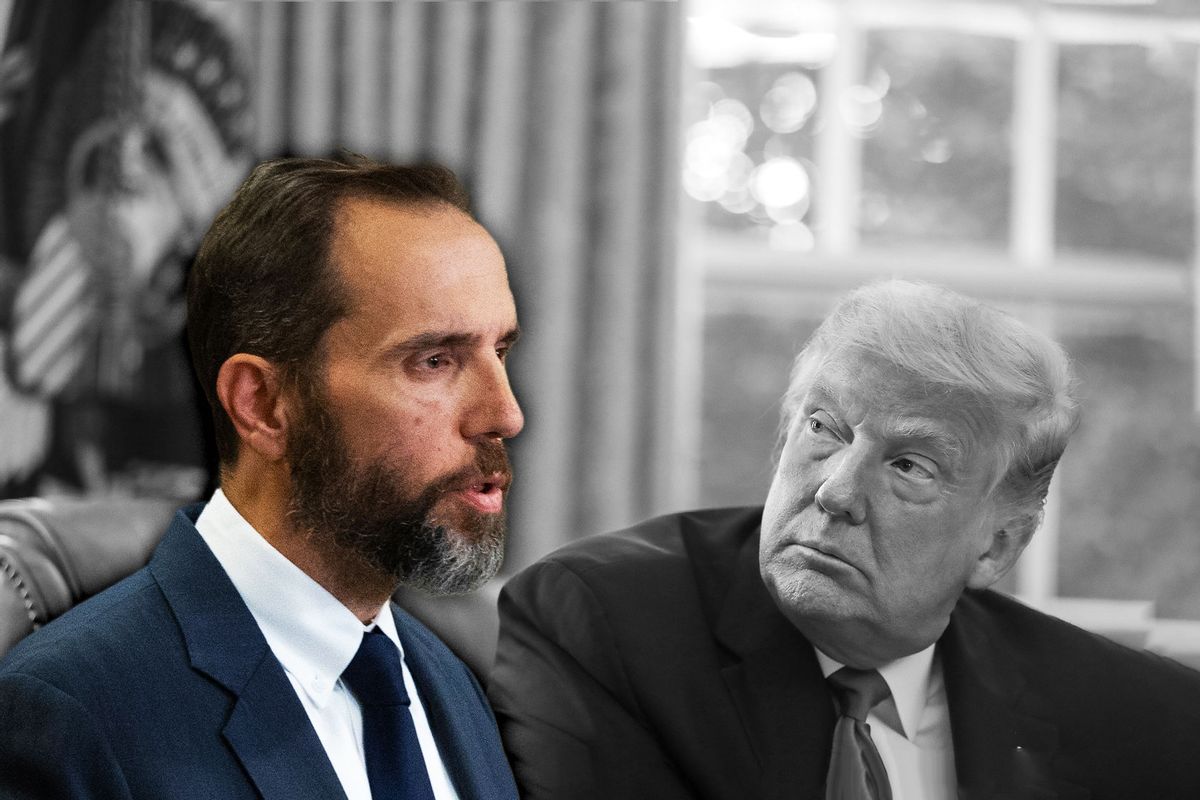Special counsel Jack Smith said in a court filing Tuesday that Donald Trump's "daily extrajudicial statements" threaten to "prejudice" the jury pool in the criminal case, which charges the former president with attempting to overturn the outcomes of the 2020 presidential election.
The claim arose during a dispute between Smith's office and the ex-president's legal team over a sealed request that the government wants to file. The filings remain largely under seal, but prosecutors revealed that their motion describes Trump's "daily extrajudicial statements," Bloomberg reported.
Trump's incendiary remarks about both Smith's team and U.S. District Judge Tanya Chutkan, have been a focal point since the indictment was lodged last month. Prosecutors have faced harassment and threats online with Chutkan even warning against inflammatory comments from Trump that could potentially intimidate witnesses or prejudice potential jurors.
We need your help to stay independent
"Threats aimed at intimidating judges, prosecutors and witnesses, reduce the fairness and accuracy of the proceedings," James Sample, a Hofstra University constitutional law professor, told Salon. "Preserving and protecting due process – a fair trial – is the most fundamental responsibility of a judge."
Trump's public statements to his "very motivated" supporters – many of whom have already "demonstrated a propensity for violence" – about the judges, prosecutors, and potential witnesses, implicate "fundamental fairness concerns," Sample added.
While Chutkan did not impose any specific speech restrictions, she indicated the possibility of moving up the trial date from its current schedule on March 4 if Trump's statements might compromise the integrity of the jury pool.
In the past, the former president has accused Chutkan of being "very biased & unfair" against him and claimed that she "obviously wants [him] behind bars" and referred to Smith's ongoing investigations into him as "witch hunts."
Trump's latest remarks came Tuesday, when he mocked Chutkan on his Truth Social platform, sarcastically mentioning that "she will be very fair" in his case. In a separate post, he also attacked Smith, calling him "Deranged" and referring to his investigation as the "Fake" election interference case.
"Trump's statements that portray his criminal cases as political plots to interfere with the 2024 election risk tainting the jury pool," former U.S. Attorney Barb McQuade, a University of Michigan law professor, told Salon. "We have seen through his false claims of a stolen election his power to mislead members of the public. Just one juror who buys into Trump's claims can nullify the law and hang the jury, resulting in a mistrial."
Jury selection inevitably presents "unique challenges" in any case in which the defendant is a former president, Sample added. While it is "unrealistic" to expect jurors not to have preexisting opinions about the defendant, it "remains fundamental" that jurors decide cases based on the evidence presented in court, and not on unsupported claims made outside the court, he explained.
Jurors are not supposed to have strong feelings on a case that could impact their impartiality towards the evidence, pointed out Nina Marino, a partner with the white collar criminal defense firm Kaplan Marino.
Want a daily wrap-up of all the news and commentary Salon has to offer? Subscribe to our morning newsletter, Crash Course.
"If Trump is going to face accountability for past comments, it will be based on the totality of comments occurring on a daily basis in the media," Marino said. "In terms of impact on the cases against him, the courts will need to weigh his First Amendment right to free speech against the danger of contaminating the jury pool and witness intimidation. Witness intimidation could be demonstrated if potential witnesses were to report that his comments put them in fear."
When prosecutors on Tuesday tried to file court documents partially under seal and publish a redacted version on the public docket, Trump's team argued that the filings should not be posted under seal until they have 14 days to respond.
But Smith's team responded saying, "Such a requirement would grind litigation in this case to a halt, which is particularly infeasible given the pressing matters before the Court — including the defendant's daily extrajudicial statements that threaten to prejudice the jury pool in this case, as described in the Government's motion."
Chutkan ordered both sides to file additional legal briefs next week on whether and how the underlying Smith submission should be posted on the docket.
"The judges in the four cases are being asked to perform unenviable high-wire acts, Sample said. "Each judge must balance numerous competing interests ranging from fundamental fairness concerns, to the safety of court officers and prosecutors, to the speech rights of a presidential candidate. The questions are unprecedented and difficult. The answers are, at best, ambiguous and unsatisfying."



Shares